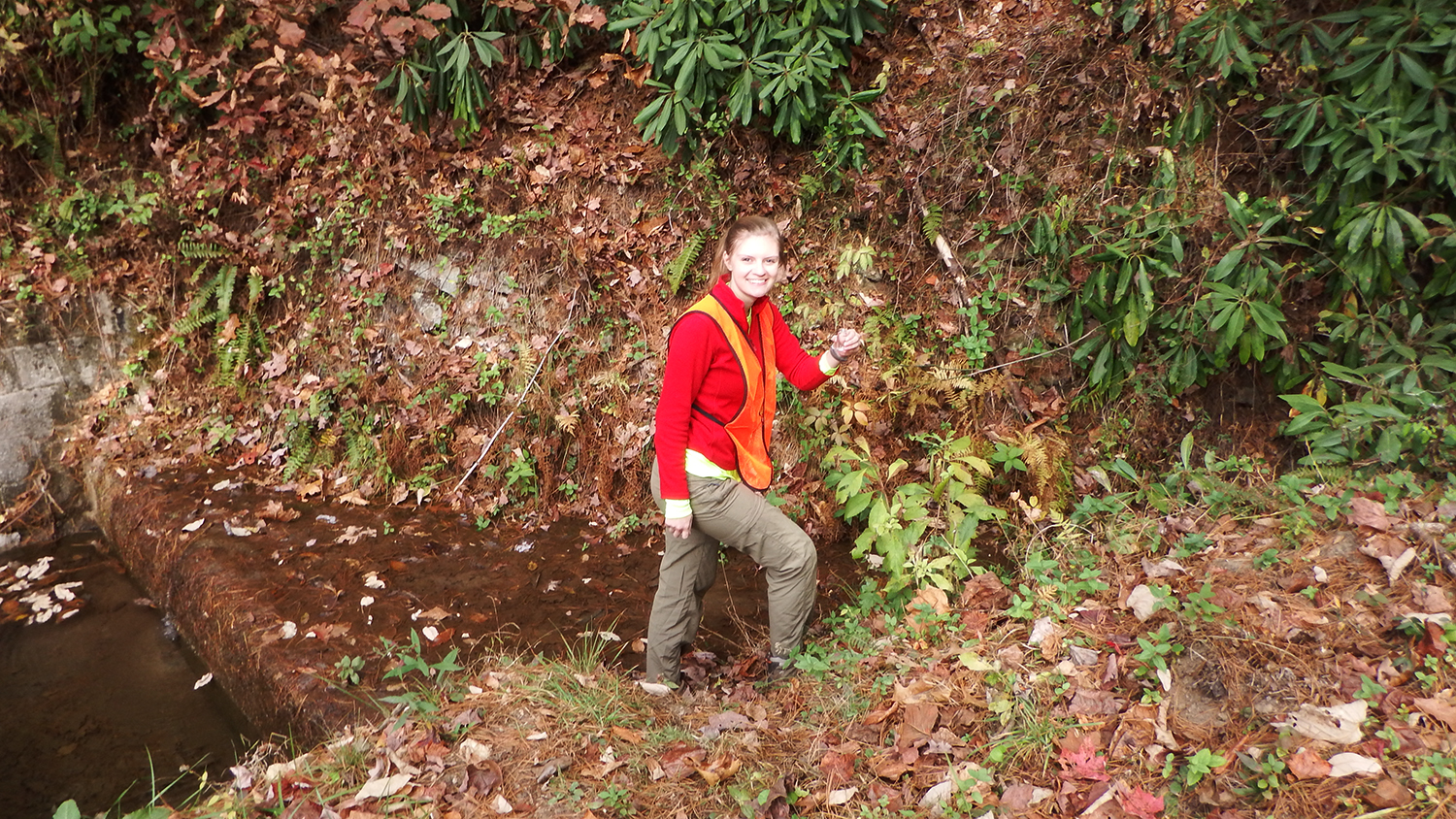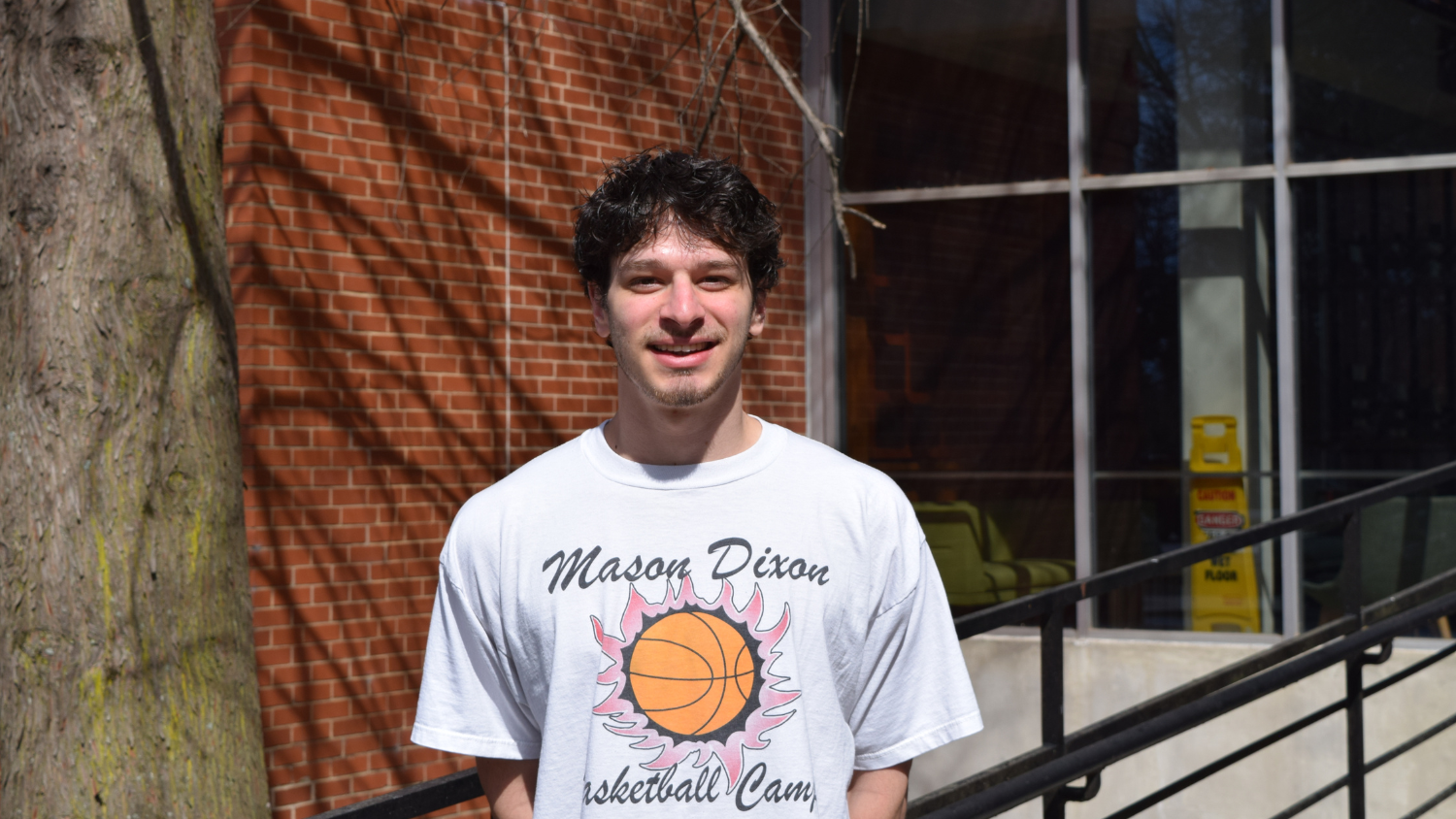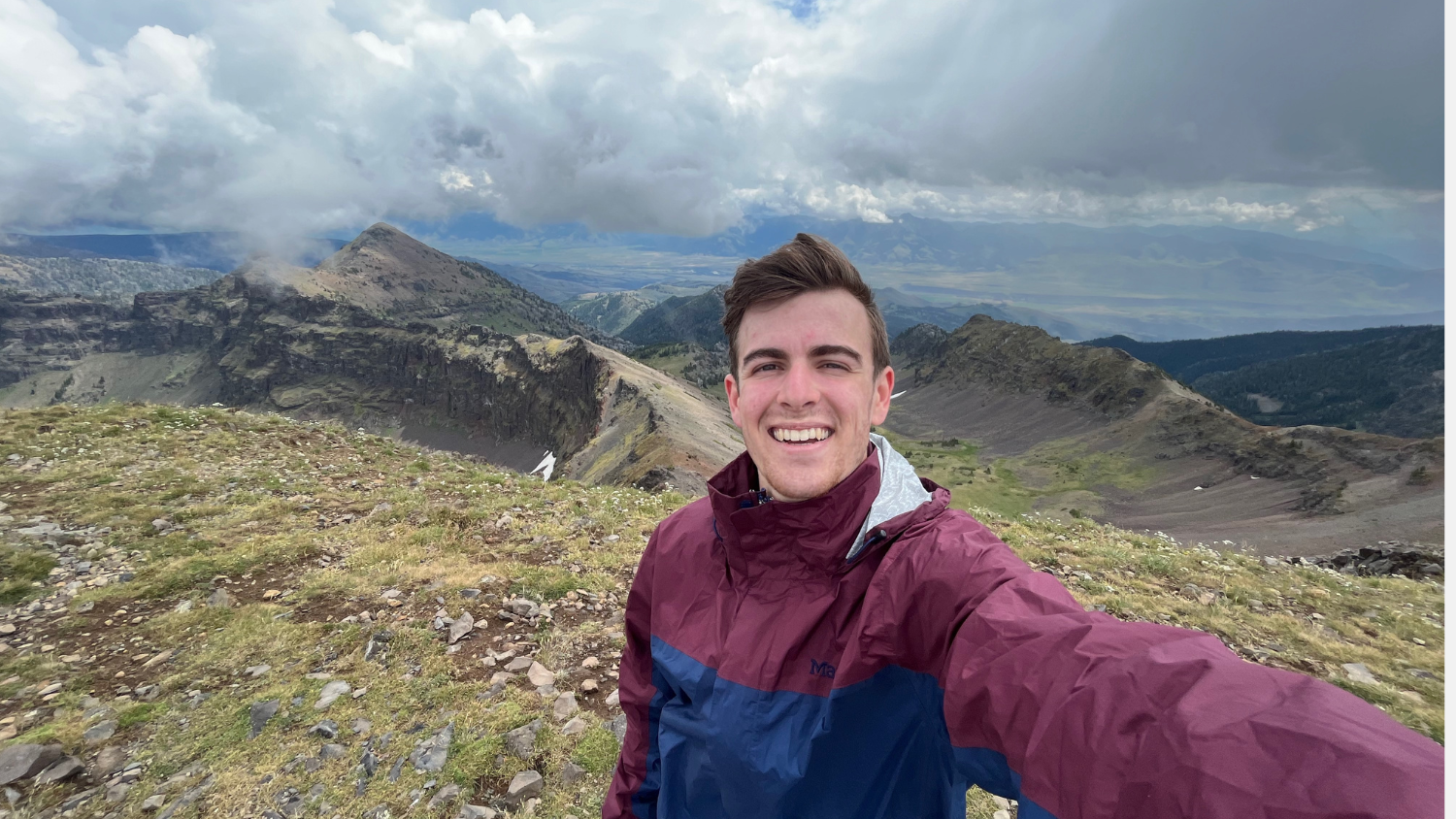Graduation to Vocation: Applying Research in Tree Water Usage to Real-World Issues

Andrea Medenblik graduated with a Master’s in Natural Resources (Hydrology Technical Option) and will work as a hydrologist at the U.S. Geological Survey South Atlantic Water Science Center in Raleigh, North Carolina.
How has the College of Natural Resources impacted you and prepared you for your future?
The College of Natural Resources has prepared me for the future by providing a diverse curriculum, the infrastructure to perform research, and opportunities to engage with faculty and peers. I now feel better equipped to study natural resources in a variety of settings and have a broader view of natural resource management.
What kind of research or other hands-on/in-the-field learning did you participate in?
My master’s thesis research involved several weeks of fieldwork at Coweeta Hydrologic Laboratory in the North Carolina mountains. During my fieldwork, I learned to design my field experiment, collect a variety of samples, install environmental sensors, and download sensor data. I was able to work with technicians and researchers from several institutions to learn these field methods.
Tell us about a faculty member who influenced you.
My advisor, Dr. Ryan Emanuel, heavily influenced my time at NC State. Dr. Emanuel was supportive of my research interests from the very beginning and helped me learn to shape my broad interests into specific research questions, methods, and manuscripts. From him, I also learned what it meant to incorporate the community into research. I originally joined his lab because of its ecohydrology focus, but in the process, I discovered what it means to apply your scientific expertise to real-world issues that impact lives.
What is unique about your work?
My work takes place in one of the wettest and most biodiverse regions of the southeast United States. I use laser spectroscopy to study the stable isotopes of hydrogen and oxygen in the water inside trees.
What motivated you to pursue your work?
I want to ensure that communities in the southeast United States will continue to have plentiful water supplies in the future. My work aims to improve the hydrologic models that help estimate water supply.
Anything else?
Though science is often focused on methods, field work, lab work, data analysis, and writing, my time in graduate school showed me that the people involved are what make it so enriching and worthwhile. I met many inspiring, motivated, intelligent, kind, and generous people. These personal and professional relationships have been the key to reaching the finish line of my master’s degree and navigating my career.
- Categories:


